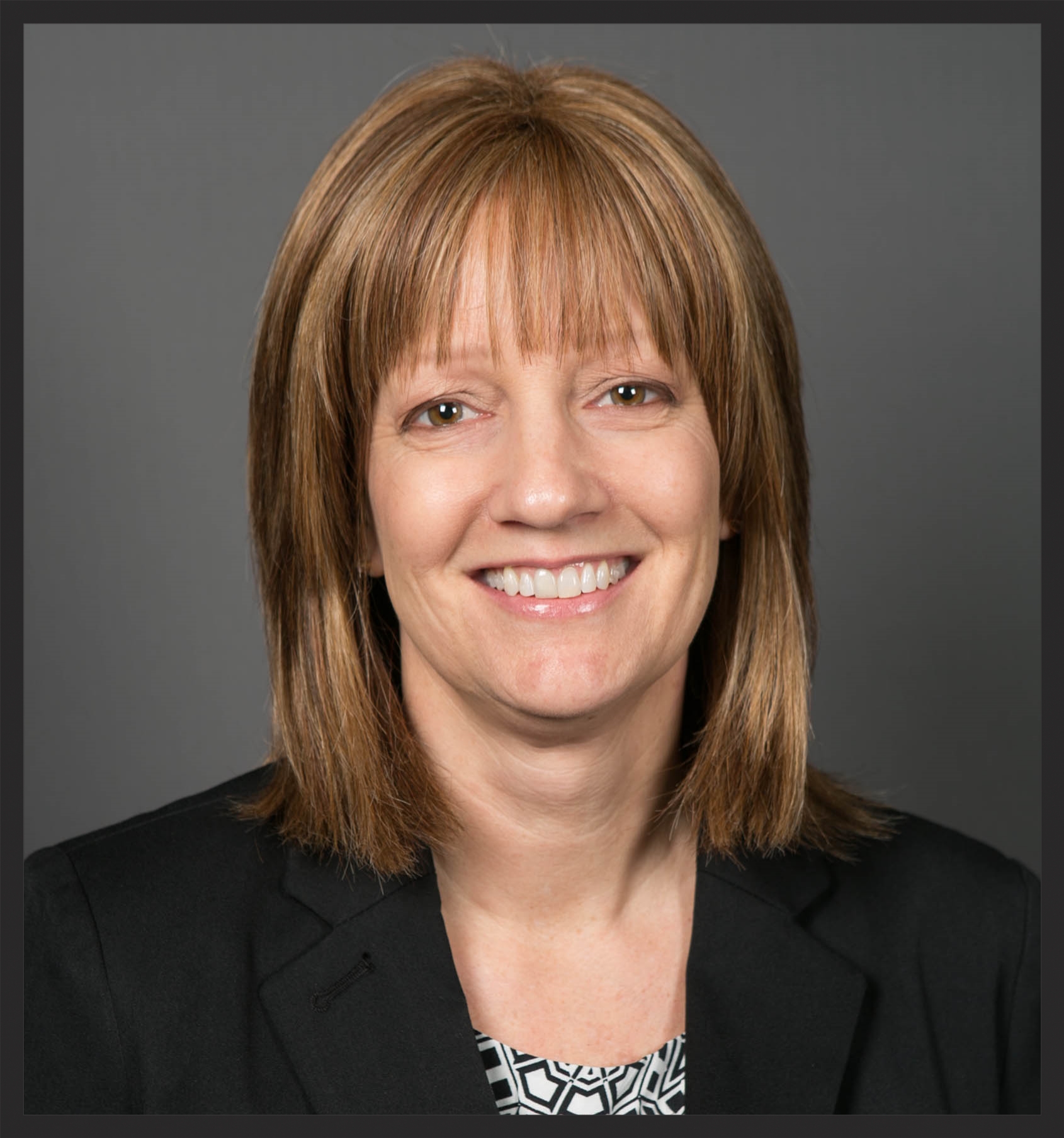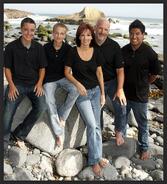Family plays a big role in the lives of women with alopecia areata. This week we had the pleasure to interview Yvonne, a working mother of three boys, and a third-generation woman with alopecia areata. With this uncommon family history, we asked Yvonne about its influence and about her own approach to living with AA.
Thea: What was it like having both a mother and a grandmother with alopecia?

Yvonne: I was in high school in the mid-80's when my mom started to lose her hair. I remember telling her multiple times it was no big deal. In the mornings when she came out of her room she had her wig on. I have never seen her without her wig. To this day she still wears a wig and none of her friends know she has alopecia. At the time my mom had started her losing her hair, her mom had already passed away, but that was when she realized her mom had probably had it too. She recalls that the topic of hair was definitely off-limits and that no one could touch my grandmother's hair and that she would also wear wigs.
Making it Easier to Live With
Thea: With this family history, what was your thinking when you lost your hair?
Yvonne: I knew that I didn't want to hide from it. I didn't want to feel restricted from wearing different wigs, wearing hats, or even nothing if I felt like going without. Most of my friends and immediate colleagues know that I have alopecia and it makes it so much easier to live with it. I usually wear a wig to work because I feel more comfortable with the way I look. The rest of the time it'a a cap or hat. Life goes on and I'm the same person, just without hair.
Transitions Along The Way
Thea: What were the thoughts in your head as changes were happening on your head?
Yvonne: For the first 43 years of my life, I never in my wildest dreams thought that I would get alopecia. I did have two small spots as a child. It was treated with steroid shots and the hair grew back. When it happened again, I was certain my hair would grow back and that would be the end of the incident. Strangely enough, I started getting more spots. When it got worse, I really started to panic. I tried various treatments and changed my diet. No success. I was completely devastated for over a year and did not accept that I was losing my hair. I loved my hair. Even today not a day goes by that I don't wish that I had my hair. Yet, my friends don't look at me or treat me any differently from when I had hair.
Thea: This was a whole new turn of events. What were the challenges?
Yvonne: The doctor I saw for treatment said I had over 50% hair loss and should consider wearing a wig. It was then that it really hit me. I realized because the treatments weren't working that I really wasn't going to get my hair back. I needed to get over this idea that my hair was going to grow back. Even with treatments, within a few months I had lost all of my hair, eventually to Alopecia Universalis.
Thea: For many women, feeling self-conscious is a common reaction. Did you go through that phase?
Yvonne: The first year I wore a wig and I was very self-conscious. I thought everyone was looking at me. My husband would always tell me that no one is looking at me. I realized that really, no one is looking at me! Slowly, I got more comfortable and started wearing hats. I think it took me a few years to get to the point where I don't really care what people think. If people ask me about it, I usually just laugh and say I have alopecia. No big deal.

Wonderful Support: "They Couldn't Care Less About My Hair"
Thea: Tell me about the people who are closest to you.
Yvonne: My famly has been my support through this entire journey. My husband, kids, mom and dad. My husband, Vince, tells me he loves me for who I am, not for my hair. In fact, he jokes that my hair from my wigs is more beautiful than my real hair ever was. He tells me I'm beautiful with or without hair. When I was struggling with my alopecia, my husband used to tell me: "The people who matter don't mind and the people who mind don't matter."
My kids have also been wonderful. They tell me all the time to not wear anything on my head. The say "just go bald." They couldn't care less about my hair. We've taken a few vacations where they have encouraged me to take my hat or wig off and let my head get some sun.
Choosing To Be Happy
Thea: What life "lessons" with alopecia can you share with our readers?
Yvonne: It's taken me a while, but I've had to learn to love myself with or without hair. My hair doesn't define me. It's who I am inside that matters. Being the best person I can be to my family, friends and co-workers is most important. It's also taught me to be more compassionate towards other people because I know how difficult life can be. I can shoose to be happy and I am!
I saw a post recently from a young woman who was concerned about having children and passing on alopecia. I don't think alopecia is something to fear. Life is short. Enjoy the life you have and don't worry about passing on alopecia. It's not going to do you or your family any good to worry about it, nor is it something you can control.
Clinical Trials
Thea: You decided to volunteer for a clinical trial with Xeljanz, a most personal and individual decision.
Have you discussed your participation with your own primary care doctor, endocrinologist or dermatologist? If you got opinions from them, were they all the same or variable?
Yvonne: No, I have not.
Thea: What were your top reasons for wanting to participate?
Yvonne: I felt like this was an opportunity to try and help find a cure and I wanted to be part of it. My mom is very excited and hope it works. Even if it doesn't work on me, at least they would have some data that could possibly help later.
We hope you've enjoyed Yvonne's tips and thank her for sharing her story. Use our space below for comments.
.
